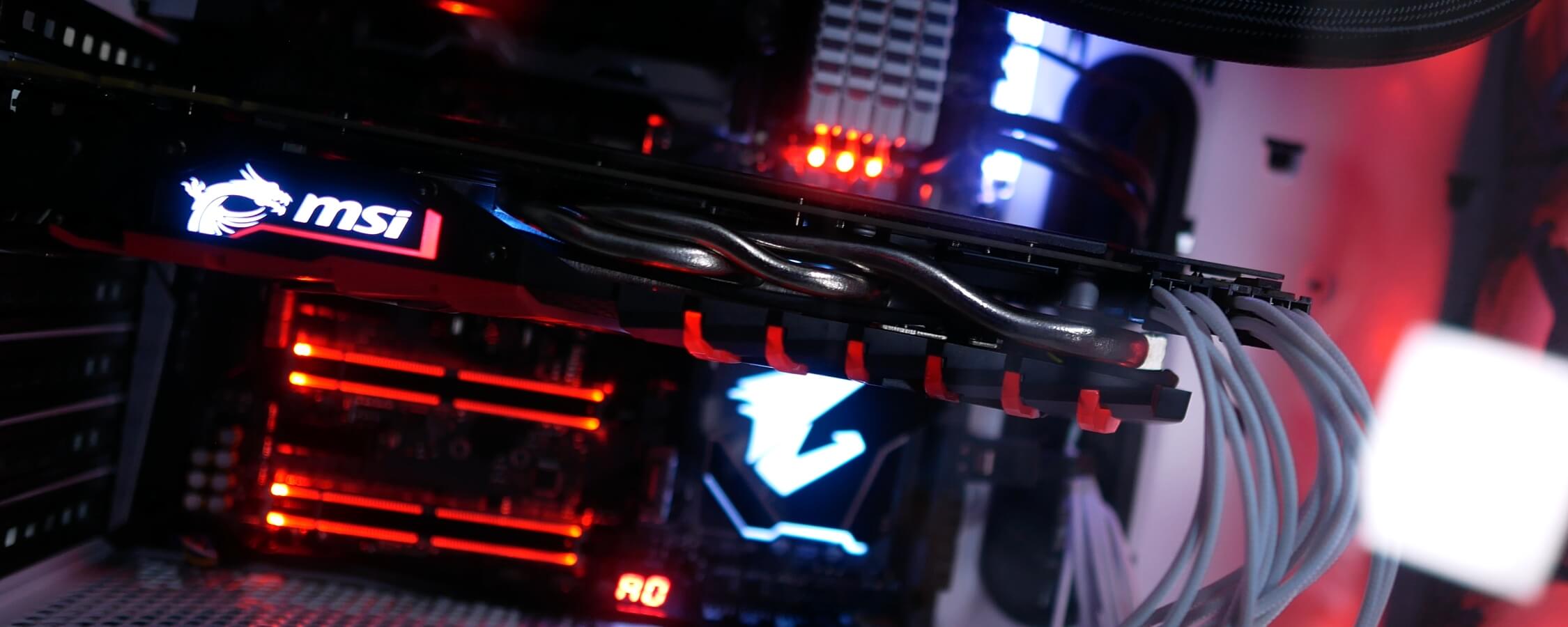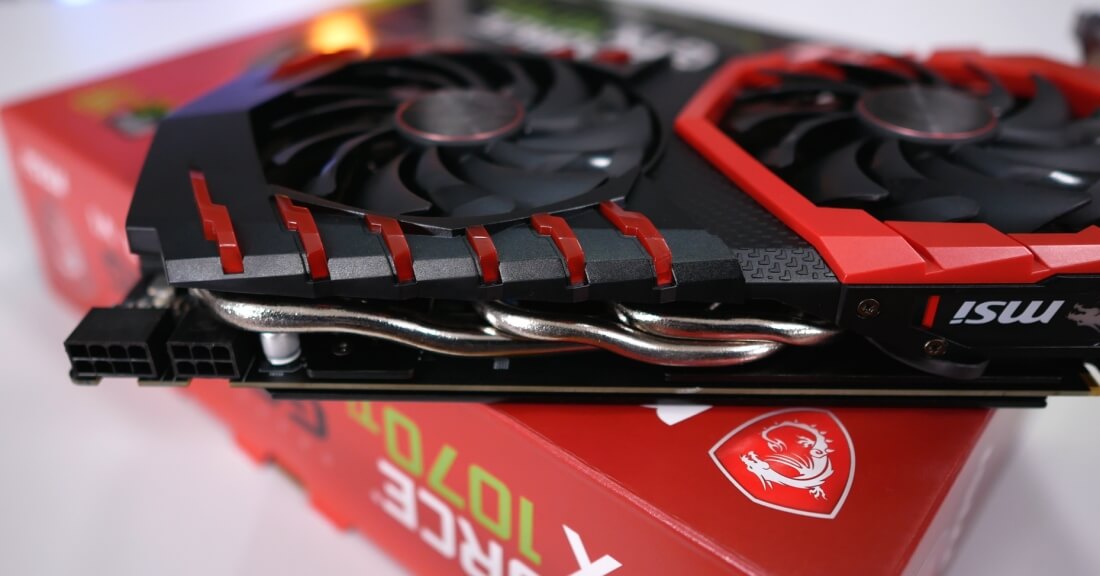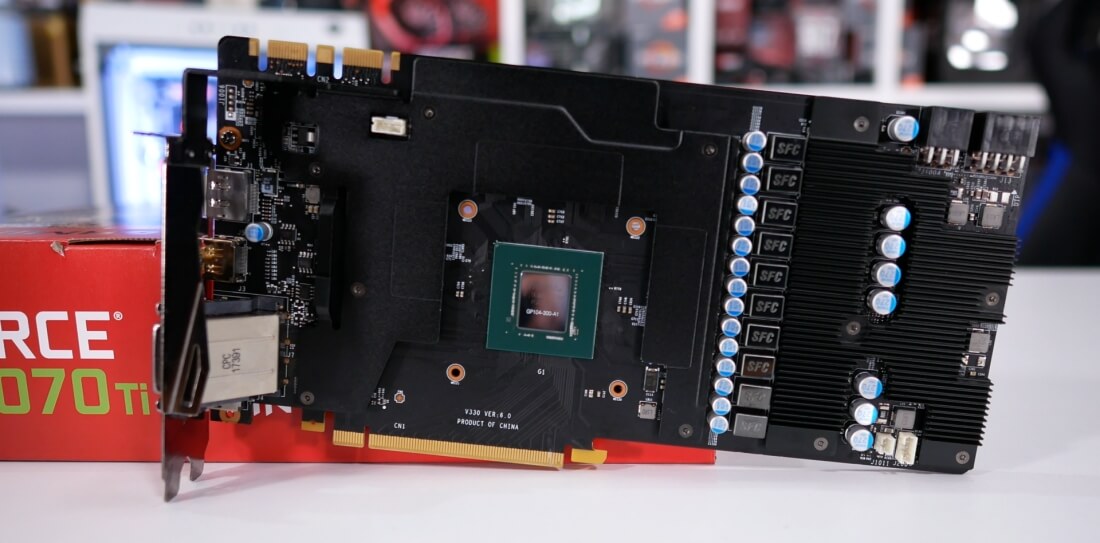Equipped with 5% less CUDA cores than the GTX 1080 and the same GDDR5 memory as the vanilla GTX 1070, it's not so simple to judge the performance of Nvidia's new GTX 1070 Ti.
We know that it has 2432 cores (27% more than the 1070) and a throughput of 8Gbps thanks to its 256-bit memory bus as well as a base clock frequency matches the GTX 1080 at 1607MHz (7% higher than a stock 1070).
With that information we can guess that in less memory demanding scenarios, it will be close to the GTX 1080 while it will be closer to the 1070 when memory throughput is more critical, although we're curious to see how overclocking affects its standing.
Something else worth noting here is that Nvidia has tied the hands of their board partners somewhat, at least for now. Whereas companies like MSI can produce factory overclocked GTX 1070 and GTX 1080 models, they aren't allowed to do this with the GTX 1070 Ti. Instead, it's up to you to extract that extra performance.
We're hoping to see big gains when overclocking the GTX 1070 Ti although I suspect out of the box the MSI GTX 1070 Ti Gaming won't look particularly impressive when compared to the Gaming X variants of the 1070 and 1080.
For example, the GTX 1070 Gaming X already has a 5% overclock applied from the factory and that will help it reduce that massive core deficit.
Without wasting any time... let's see how the new MSI GTX 1070 Ti Gaming does compared to the 1070 and 1080 Gaming X models as well as AMD's Radeon RX Vega lineup.
System Test Specs
|
Benchmarks: Gaming Performance
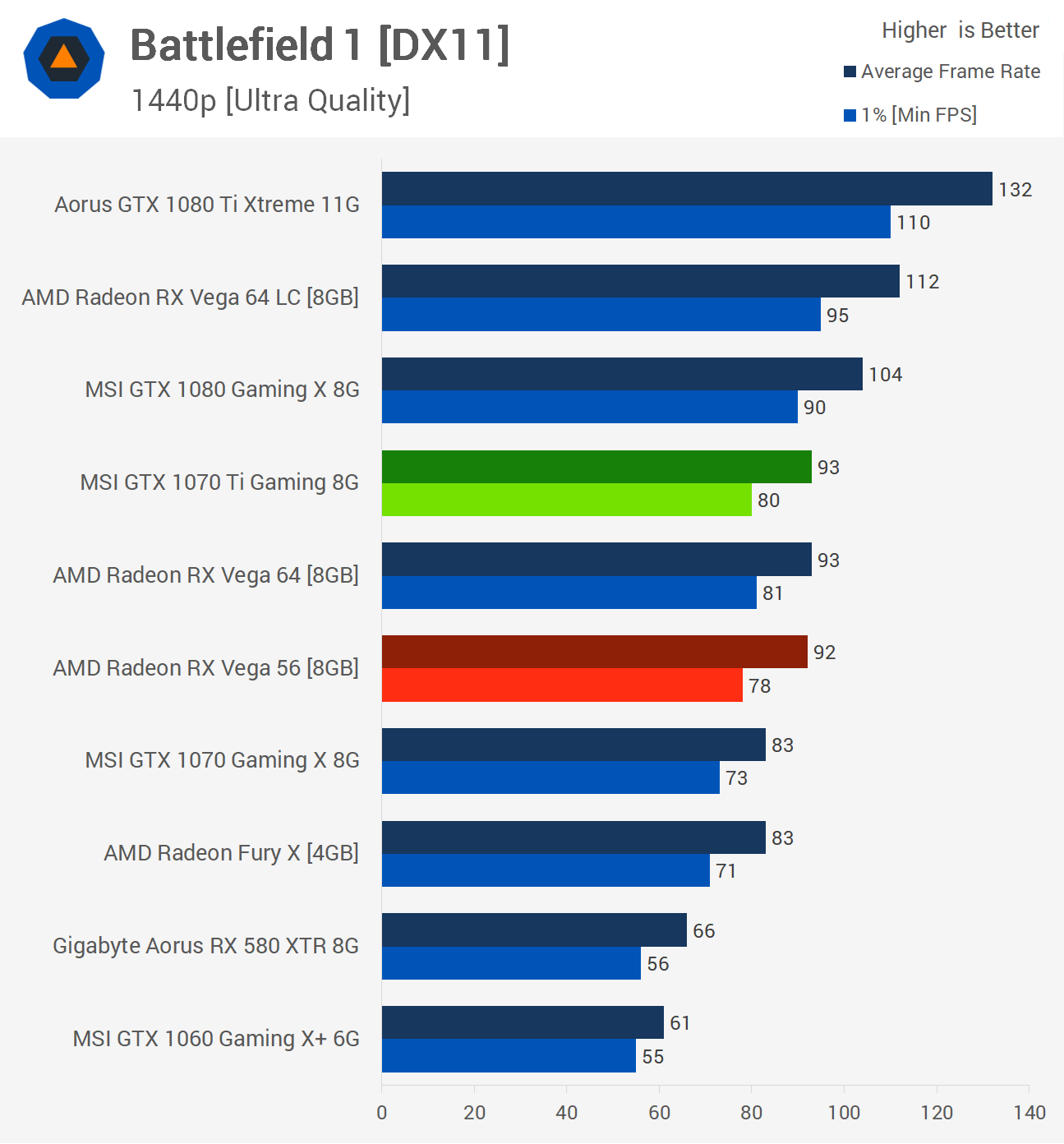
Our Battlefield 1 results should show us just how well the MSI GTX 1070 Ti Gaming does out of the box. At 1440p, using the ultra quality preset it was good for an average of 93fps, which meant it was 12% faster than the GTX 1070 and 11% slower than the GTX 1080, pretty well smack bang in the middle and as luck would have it that places it alongside the air-cooled RX Vega graphics cards – doubt that's a coincidence.
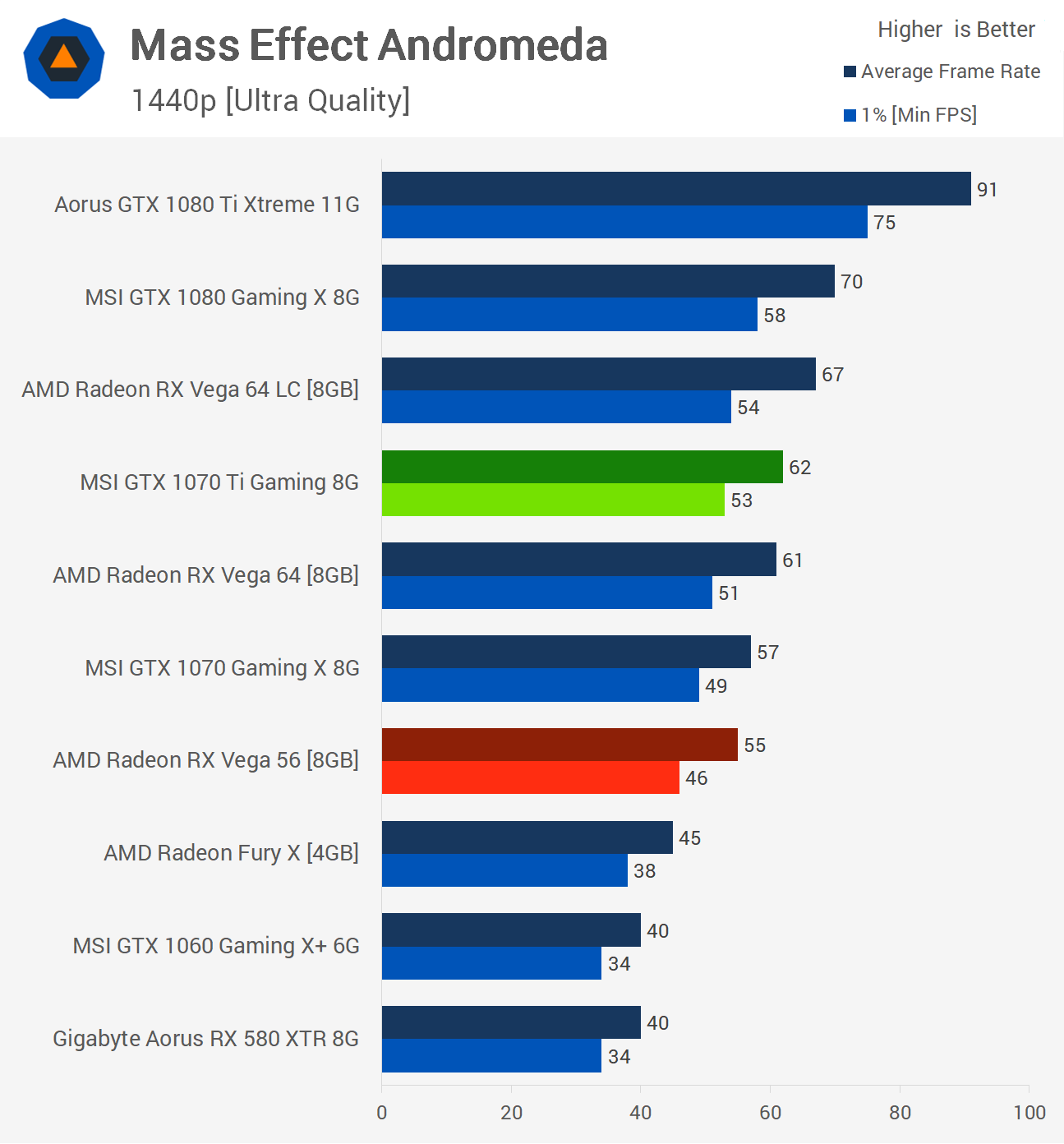
Testing with Mass Effect: Andromeda we found that this time the GTX 1070 Ti is 9% faster than the factory overclocked GTX 1070 Gaming X, but 11% slower than the 1080 model. That said, it was able to match the air-cooled Vega 64 graphics card with 61fps on average.
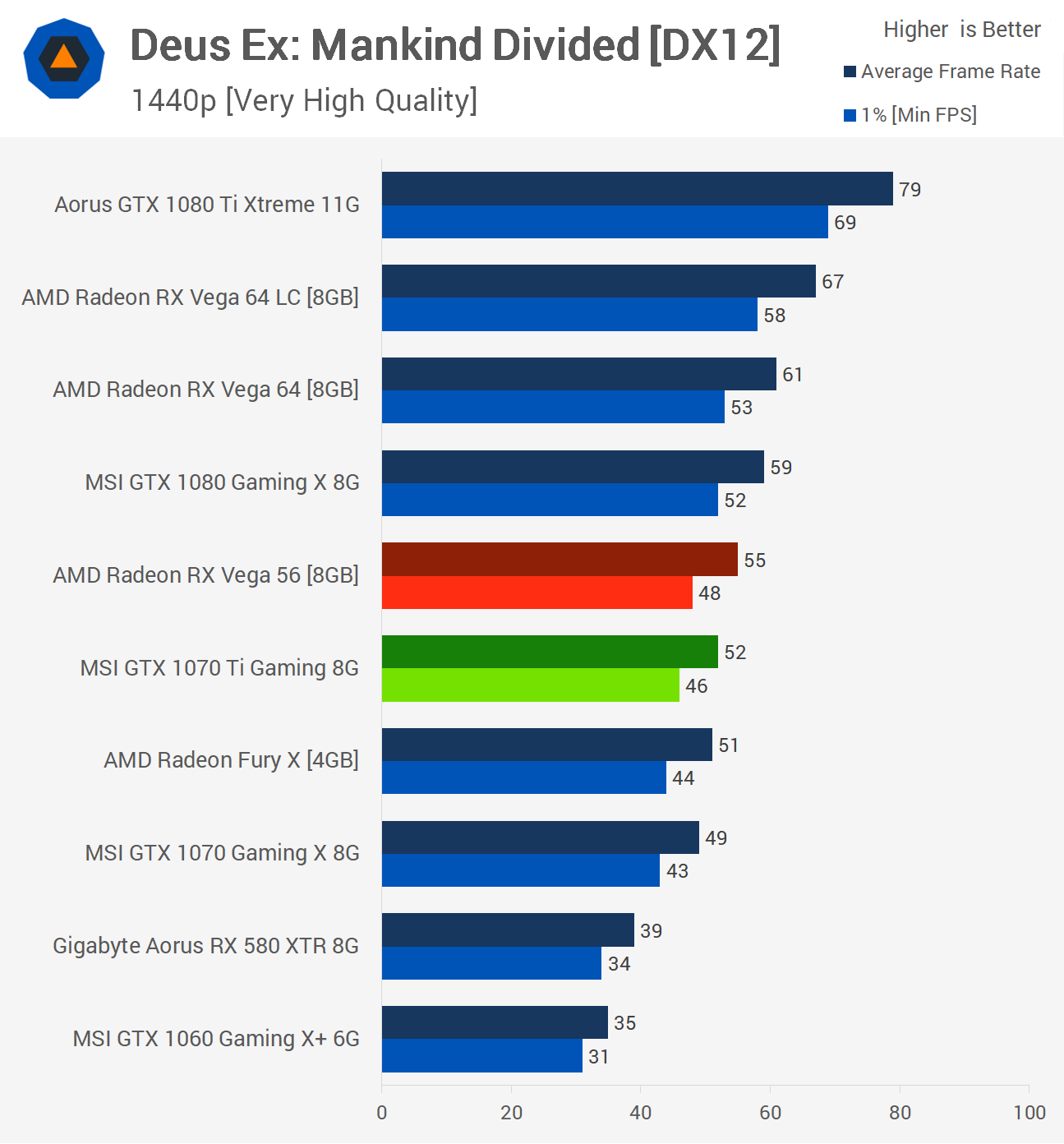
Before getting into the overclocking, I have some Deus Ex: Mankind Divided results and here the 1070 Ti was just 6% faster than the Gaming X 1070. It was also 12% slower than the GTX 1080 so we might find memory overclocking will make a big difference here. AMD does well in this title and therefore the GTX 1070 Ti isn't quite able to catch the Vega 56 graphics card.
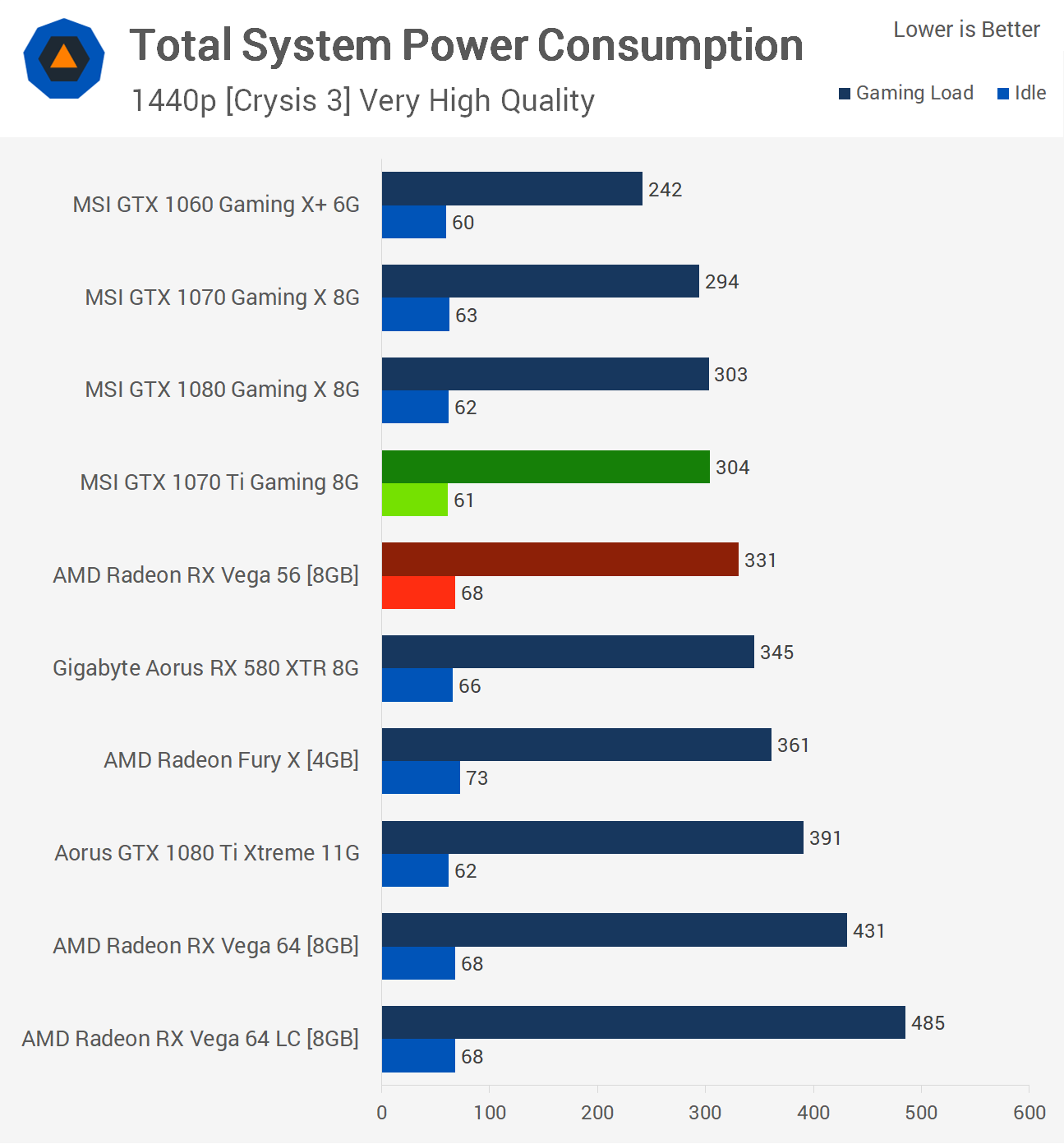
Moving on, we have the stock power figures and here we can see that MSI GTX 1070 Ti Gaming consumes the same amount of power as the GTX 1080 Gaming X, which is really only slightly more than the GTX 1070 Gaming X. So there's certainly nothing unexpected about these results and it means the 1070 Ti reduced system consumption by 8% compared to the Vega 56.
When it comes to temperatures, MSI's Twin Frozer 6 cooler keeps things cool and quiet. If GPU temps are below 60 degrees the Torx 2.0 fans won't even spin up. Under load the card maxed out at 64 degrees and ran virtually silent – it was without question quieter than the case fans which are already quiet. So this should point to some fairly decent overclocking headroom...
